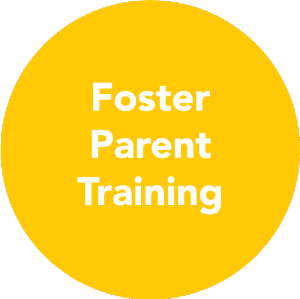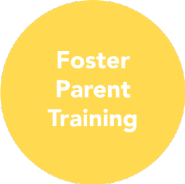Adriel Blog > November 20, 2024
Words of Thanksgiving and Gratitude for Foster Families Year-Round
Thanksgiving is a special time to pause, reflect, and express gratitude for the blessings in our lives. For foster families, this season can be an important opportunity to create a sense of belonging, love, and appreciation. However, the power of words of Thanksgiving and gratitude extends far beyond just one holiday. By cultivating gratitude and togetherness throughout the year, foster families can build deeper connections and create a lasting impact on both the children and adults within the household. Here are seven ways to not only make Thanksgiving special but also keep the spirit of gratitude alive all year long.
What’s Foster Parenting All About?
Share Gratitude Around the Table Regularly
While sharing gratitude around the table during Thanksgiving can be a cherished tradition, why not make it a regular part of your family routine? Set aside time once a week, or even once a month, for each family member to share what they are grateful for. This practice helps foster children learn the value of reflection and appreciation in everyday life, beyond the holiday season.
You can even keep the tradition going by writing or drawing on paper leaves and hanging them up as a reminder of your family's continuous expressions of gratitude. As foster children contribute words of Thanksgiving and gratitude, they begin to see that every day brings something to be thankful for.
Why it works: By making this a year-round tradition, families create a consistent space for connection and positivity, reinforcing a sense of belonging for foster children
Keep a Year-Round Gratitude Journal
Thanksgiving may be the spark that ignites a new habit of reflection, but a gratitude journal can help keep that flame alive throughout the year. Encourage your family to document their words of Thanksgiving and gratitude by noting down the things they are thankful for regularly. This can include anything from the big moments, like celebrating a new milestone, to the small, daily joys of spending time together.
For foster children, maintaining a gratitude journal can offer a way to process emotions, reflect on positive experiences, and develop a mindset focused on the good in their lives—even during difficult times.
Why it works: A gratitude journal builds a long-term habit of internal reflection and positivity, allowing foster families to cherish the little moments that make life special.
Prepare and Share Meals with Gratitude Year-Round
Cooking together as a family can create lasting memories during Thanksgiving, but it’s also a great way to bond throughout the year. Whether it’s a special Sunday dinner or a simple weeknight meal, cooking together gives foster children a sense of contribution and teamwork. During meal prep, take a moment to express words of Thanksgiving and gratitude for the food you have, the hands that prepared it, and the opportunity to sit down as a family.
You can extend this spirit of gratitude by preparing extra meals throughout the year to donate to shelters or neighbors in need, fostering a culture of giving and empathy within your home.
Why it works: Year-round meal preparation with gratitude instills important values in foster children, helping them understand the power of giving and the joy of contributing to the family.
Craft a Permanent Thankfulness Jar
Why limit your gratitude to just one day or one season? A "Thankfulness Jar" is a perfect year-round activity that keeps gratitude flowing. Each time someone feels grateful for something—whether it’s a kind word, a special moment, or a helping hand—they can write it down and add it to the jar. At any time during the year, the family can revisit the jar, reading aloud the words of Thanksgiving and gratitude that have accumulated over the months.
This activity helps foster children to focus on the positive things in their lives and teaches them that gratitude isn’t confined to one season.
Why it works: A permanent Thankfulness Jar helps foster families build a consistent practice of gratitude, which strengthens bonds and fosters positivity all year long.
Share Stories with Words of Thanksgiving and Gratitude Every Month
Storytelling is a powerful way to build connections within foster families. While sharing stories of gratitude is a natural fit for Thanksgiving, these stories can also unfold year-round. Whether it’s recalling the moments you were grateful for a family member’s support or sharing inspirational stories of overcoming challenges, regularly telling stories helps create a family narrative that everyone can feel part of.
Encourage foster children to share their own stories of gratitude—this helps them find their voice, reflect on positive feelings from the past, and see that their contributions are valuable to the family.
Why it works: By sharing stories of gratitude consistently, foster families can build a deep sense of belonging, connection, and understanding that lasts beyond just one holiday.
Volunteer Together Throughout the Year
Thanksgiving often inspires families to give back to their communities. But fostering a spirit of service can continue throughout the year. Volunteer together as a family at food banks, shelters, or community clean-up events, not just during the holiday season but as a regular practice. Foster children benefit from seeing the impact they can make in the lives of others and learn the importance of giving back.
By volunteering year-round, foster families demonstrate that gratitude is more than just saying "thank you"—it’s also about giving of ourselves to lift up others.
Why it works: Volunteering builds self-esteem in foster children and helps them develop a sense of purpose by contributing to their community all year long.
Send Thank You Notes Regularly and Often
While Thanksgiving is a perfect time to express gratitude with personalized thank you notes to those who’ve made a difference in your family’s life, why not continue this tradition throughout the year? Set aside time every few months to send thank you cards to teachers, social workers, neighbors, or friends who have been supportive. Foster children can join in by writing or drawing their own words of Thanksgiving and gratitude, helping them reflect on the people who’ve helped them.
This ongoing practice teaches children the importance of recognizing and appreciating others, not just during the holidays but as a continuous part of life.
Why it works: Regularly sending thank you notes instills an attitude of gratitude that encourages foster children to recognize and honor the contributions of others in their lives.
The Lasting Impact and Active Practice: Sharing Words of Thanksgiving and Gratitude
Thanksgiving serves as a wonderful reminder to focus on gratitude and togetherness, but it’s important to remember that these values can—and should—be practiced year-round. Foster families have the unique opportunity to build lasting bonds and cultivate a strong sense of belonging through the regular practice of gratitude. Whether it’s sharing words of Thanksgiving and gratitude around the dinner table or volunteering together as a family, there are countless ways to create meaningful connections every day of the year.
At Adriel, we believe every child deserves to feel loved, supported, and appreciated year-round, not just during the holidays. If you're interested in learning more about how you can help foster children or become a foster parent, contact us today. Together, we can create lasting bonds of gratitude and love that will impact a child’s life forever.
Explore Foster Care Possibilities









